PsychNewsDaily Publishers
100 Summit Drive
Burlington, MA, 01803
Telephone: (320) 349-2484
PsychNewsDaily Publishers
100 Summit Drive
Burlington, MA, 01803
Telephone: (320) 349-2484
West Virginia offers accessible mental health support through community centers, state programs, and telehealth, prioritizing low-income residents and providing various counseling and crisis services.
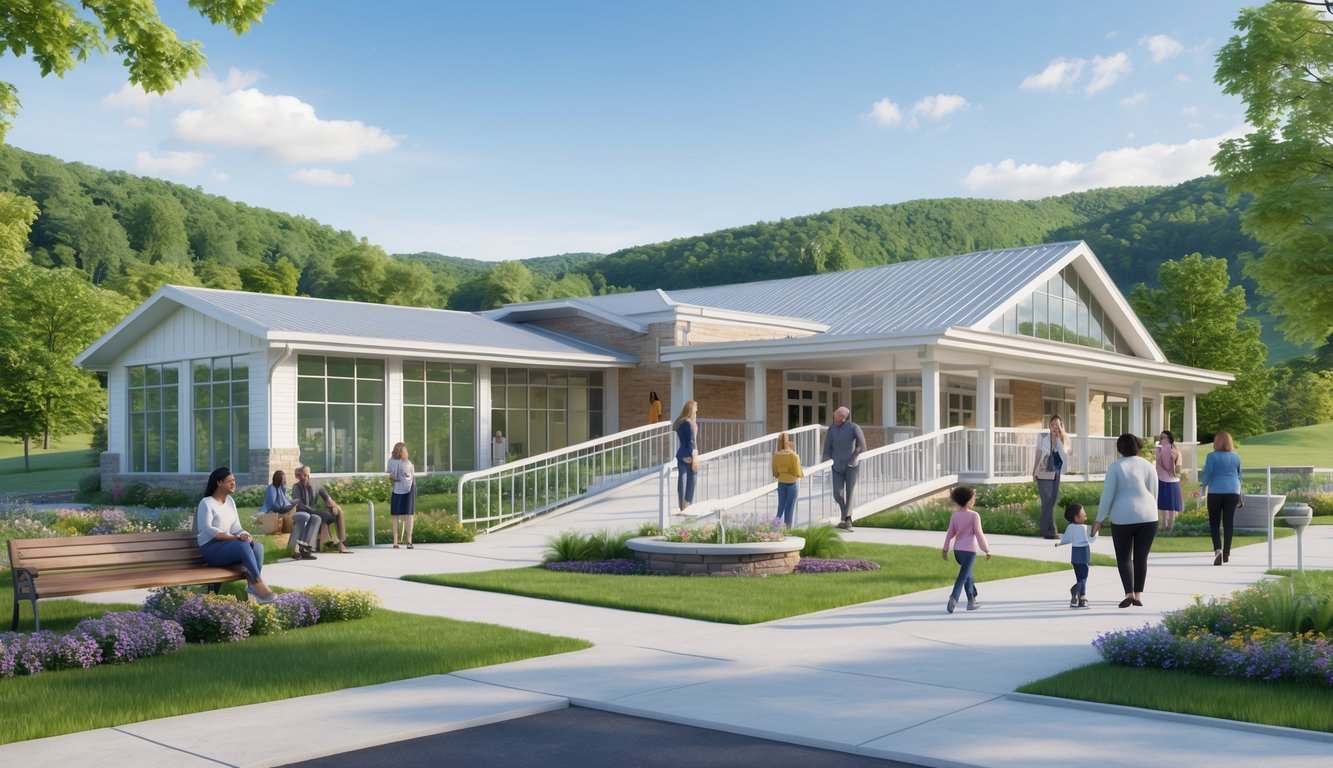
Nobody should miss out on mental health support just because of money. If you live in West Virginia, you can find plenty of free mental health services through state programs, local centers, and healthcare systems.
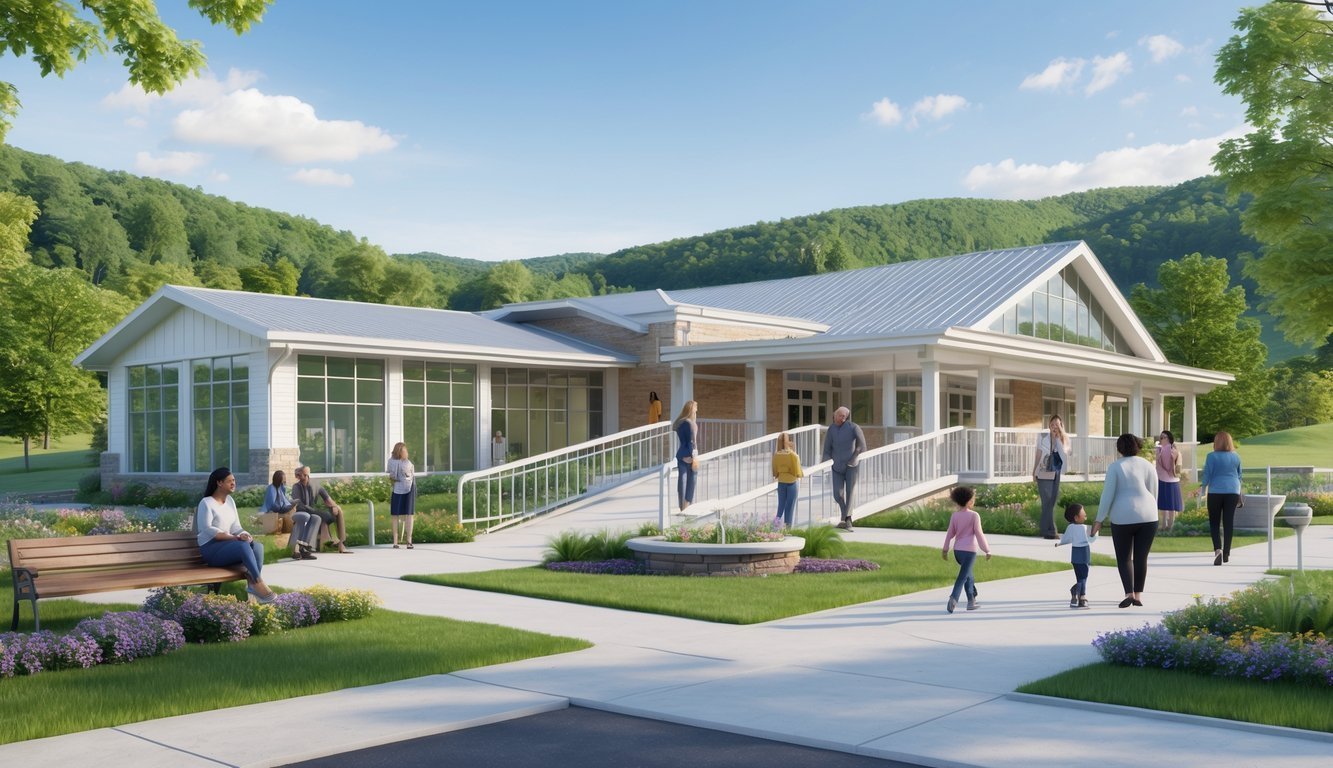
West Virginia provides free mental health care through community health centers, state-funded programs, and schools. You’ll find counseling, crisis support, and even specialized treatment at no cost if you’re a resident.
You can get basic counseling, crisis help, support for substance use, and family therapy across the state.
Trying to find the right free mental health care can feel tough when you’re already having a hard time. Knowing what’s out there, how to get started, and what to expect makes it a little easier to reach out for help without stressing about the bill.
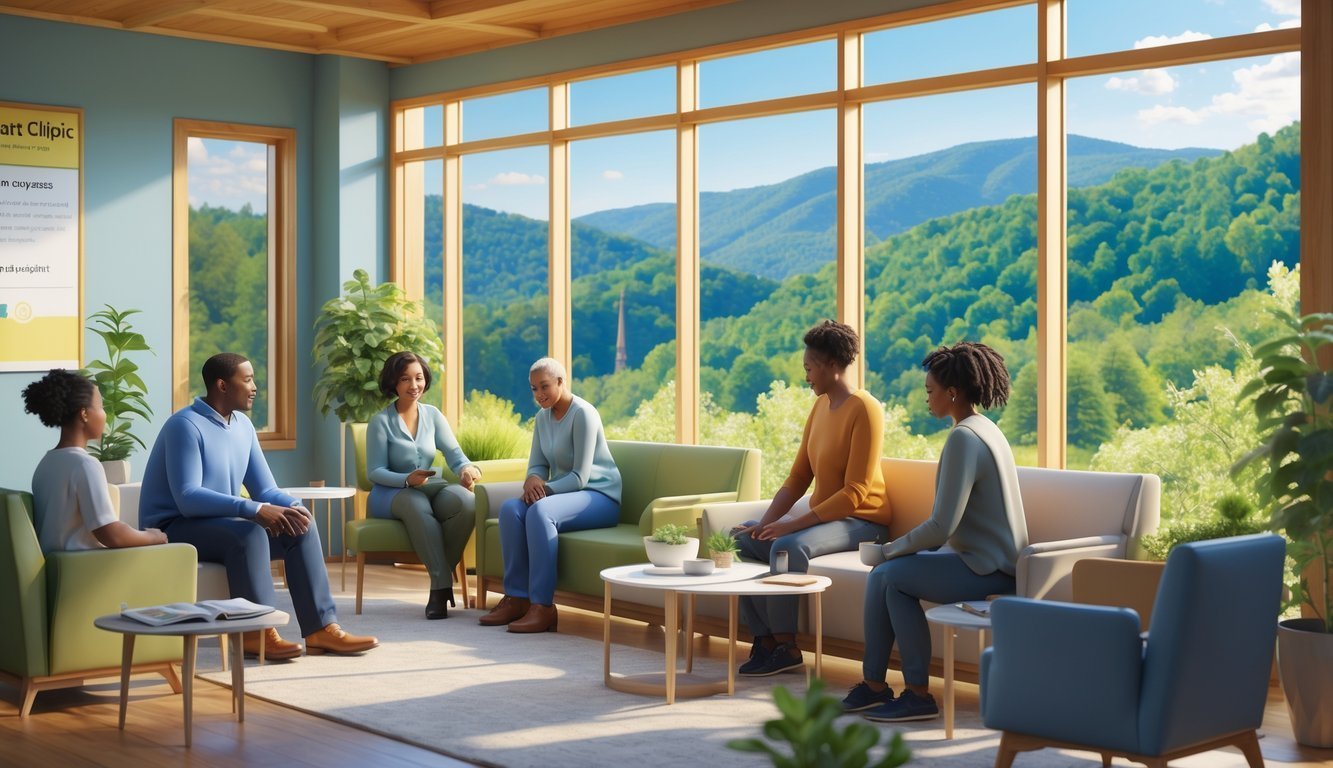
West Virginia gives you several ways to access free mental health care. You can go through state programs, local centers, or even college counseling offices.
Eligibility usually depends on your income, insurance, and sometimes the specific program.
Most free mental health services in West Virginia use income-based rules. You’ll need to show proof of income, residency, and insurance when you apply.
Income Requirements:
Each provider does things a bit differently. Community mental health centers ask you to fill out intake forms and bring documents. You can apply in person, by phone, or online, depending on the place.
What You’ll Need:
Wait times vary. You might get crisis help right away, but regular appointments can take a few weeks. If you’re in an emergency, you can get help without any paperwork.
West Virginia covers a lot of ground with its behavioral health programs. Individual counseling helps with depression, anxiety, trauma, and substance use.
You can get:
Some programs focus on certain groups. Veterans get support through VA partnerships. College students can use campus health center counseling services.
Telehealth has made things easier, especially in rural spots. You can talk to a counselor by video or phone, which helps if you’re far from a clinic.
Every county in West Virginia has a community mental health center. These centers make up the core of the state’s free mental health care.
Main Program Types:
WVU students can use mental health resources through campus wellness programs. The Carruth Center offers free counseling to students.
Community groups and state agencies work together to reach more people. Local health departments often do mental health screenings and give referrals.
If you live in a rural area, mobile crisis teams and traveling counselors come to you. These programs help people who can’t get to a clinic because of distance or transportation.
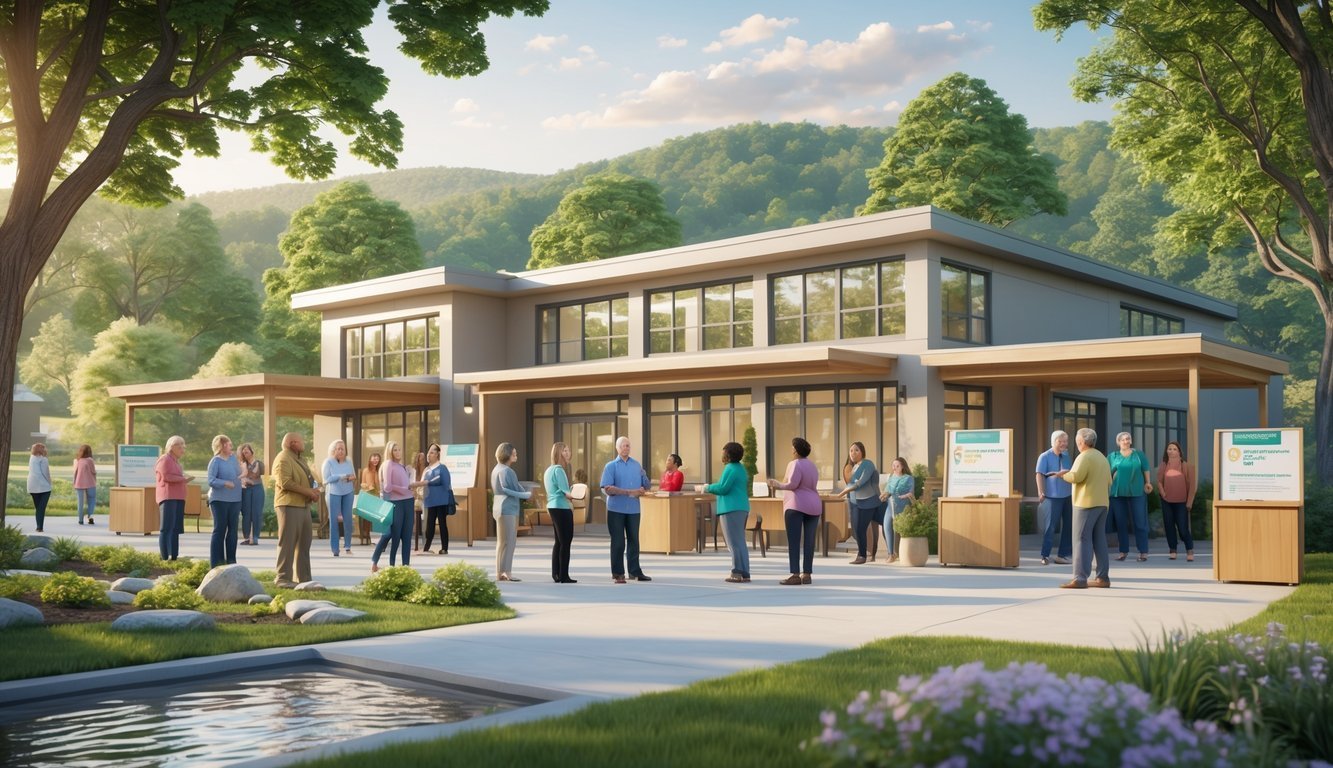
You have several ways to get free mental health care in West Virginia. There are state programs, local centers, hotlines, and services for both rural and city folks.
The West Virginia Department of Health and Human Resources runs programs that give free mental health care to people who qualify. These programs focus on low-income families or those without insurance.
Medicaid Mental Health Services pay for a wide range of treatments. You can get therapy, counseling, medication help, and crisis care through approved providers.
Children’s Mental Health Services focus on youth under 18. Kids and families can get family therapy, counseling, and even support at school.
The department also pays for emergency mental health care. You can get crisis help and short-term support, even if you can’t pay.
Community behavioral health centers are the heart of West Virginia’s mental health care. These centers offer a sliding fee scale, and many give free care to those who qualify.
Valley Health Systems has locations across the state. You can get therapy, group counseling, substance use help, and psychiatric care.
Prestera Center covers Huntington and nearby counties. They offer crisis help, therapy, and programs for trauma and addiction.
Northspring operates in the eastern panhandle. You can get counseling, case management, and peer support there.
These centers take Medicaid and set payment based on your income. Many offer walk-in crisis visits during business hours.
You can call several 24/7 helplines for immediate mental health help in West Virginia. These calls are free and private.
988 Suicide & Crisis Lifeline connects you with trained counselors who can help during a crisis and refer you to local resources. They answer calls every day, all day.
West Virginia Crisis Hotline (1-800-642-3434) gives support specific to the state. Counselors know the local resources and can point you in the right direction.
Crisis Text Line lets you text HOME to 741741 for quick help. It’s handy if you have spotty phone service but can text.
Some areas have adult behavioral health crisis centers where you can walk in for psychiatric care or get connected to longer-term help.
West Virginia’s mountains and rural areas make getting care tricky sometimes. The state has worked on ways to help both city and country folks.
Telehealth Services have grown a lot. Now you can get therapy or see a psychiatrist from home by video or phone.
Mobile Crisis Teams go out to rural spots where clinics are far away. These teams show up in person to help during a crisis and get you set up with ongoing care.
School-Based Programs run in many rural counties. Kids and teens can get counseling right at school, no ride needed.
Cities like Charleston and Morgantown have more walk-in clinics and special programs. It’s usually easier to get same-day or intensive care in these places.
Some community centers help with transportation. They give rides to appointments for people who don’t have a way to get there.
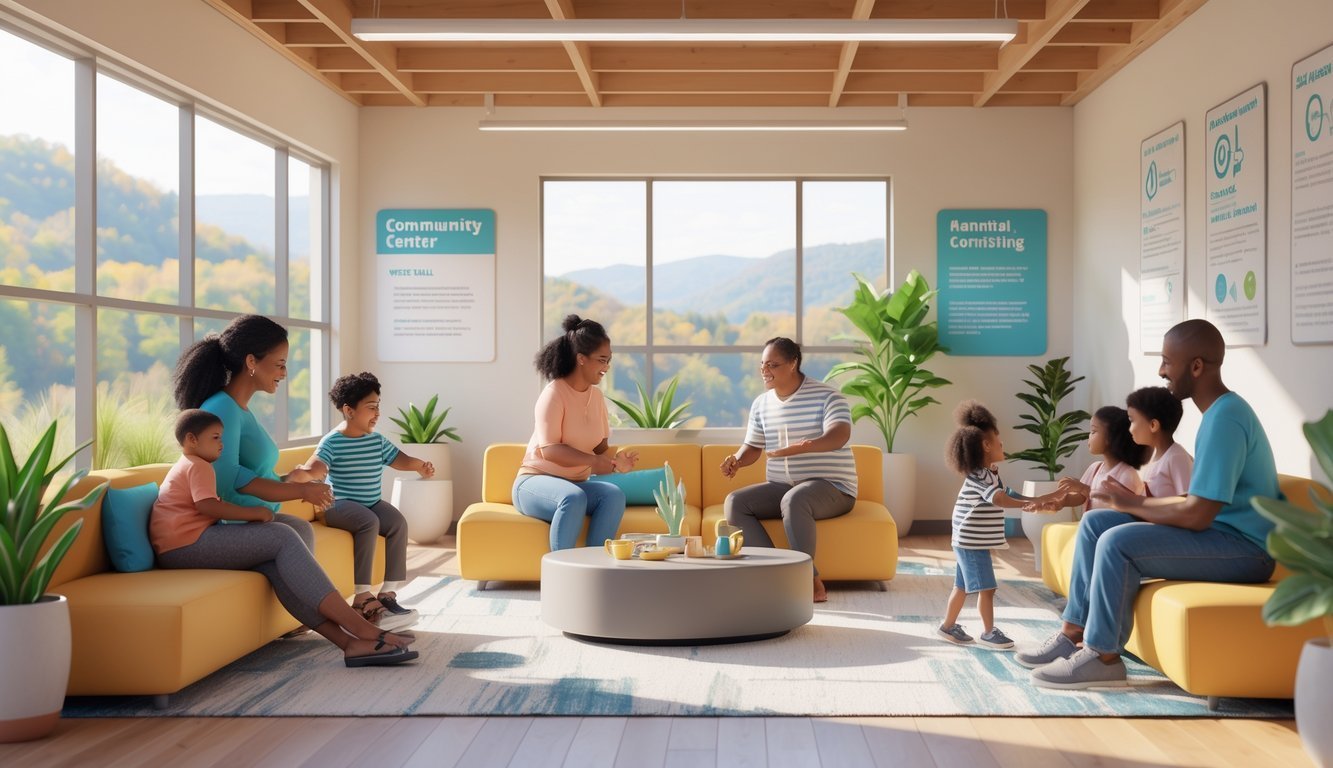
West Virginia has programs that help with tough situations like family therapy, substance use, and intensive community support. These services offer full support for people and families facing big challenges.
You can find special programs for kids, teens, and families through different providers in West Virginia. These services focus on mental illness and substance use in young adults and use family-based treatment.
Family therapy programs help everyone work through mental health struggles together. Many places offer counseling that fits each age group.
Key services:
Most programs use proven treatments. They help families learn better ways to talk and cope with stress.
You can get help for both mental health and substance use problems at the same time. Dual diagnosis programs treat both issues together.
Community colleges like West Virginia Northern Community College have substance use counseling for students. This shows how substance use support is part of education now.
Treatment options:
Counselors understand how mental health and substance use affect each other. Treating both at once usually works better than doing them separately.
ACT teams give intensive mental health care for people with serious conditions. You get support 24/7 from a team that comes to you.
These teams include doctors, nurses, social workers, and peer specialists. They all work together to help you manage your health while living on your own.
ACT services:
You’ll see your ACT team members often. They meet you where you are, whether that’s at home, work, or somewhere else in your community.
You have several ways to find free mental health care in West Virginia. Community directories and behavioral health centers help you locate services. Walk-in clinics and crisis centers offer immediate help, while telehealth gives you support from home.
West Virginia keeps online lists to help you find local mental health centers. The state’s behavioral health website lists centers by county.
You can search for providers based on what you need and where you live. Many directories show contact details, what services they offer, and who qualifies.
Directory features:
Community mental health centers are often the main way people get free care. They usually offer counseling, psychiatric care, and case management.
Local health departments also have lists of approved providers. You can call your county health office for the latest info.
Walk-in crisis centers help you right away, no appointment needed. These places stay open longer and handle urgent needs.
If you need regular care, you’ll go through an intake assessment. This usually takes an hour or two and checks if you qualify for free services.
How to get started:
Sometimes, centers get busy and use waiting lists. You might want to call a few places to see who can help you the fastest.
If you’re in a crisis, use a hotline or go to the emergency room. These services connect you to mental health pros any time, day or night.
Telehealth services make it easier for people in rural West Virginia to get mental health care. Many providers now give video counseling sessions at no cost if you qualify.
You’ll need a decent internet connection and a device with a camera for video calls. If you don’t have video, you can still get counseling over the phone.
Popular telehealth platforms include:
Online mental health sites also offer self-help tools you can use between appointments. You’ll find things like educational guides, coping tips, and peer support groups.
Some telehealth providers focus on certain conditions, like depression, anxiety, or substance use. If you need these, you can usually get started through a referral from a local mental health center.